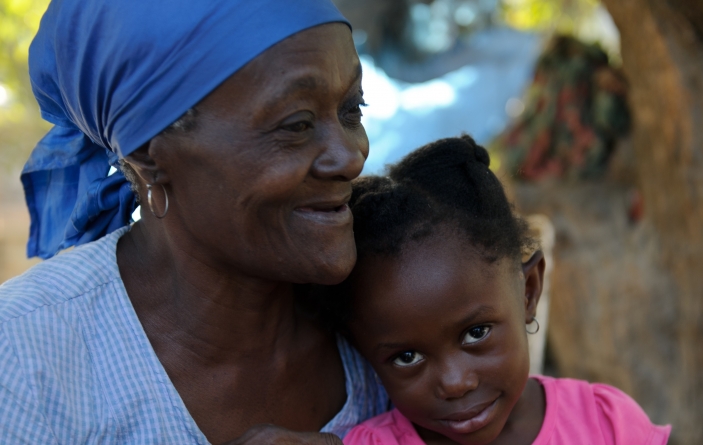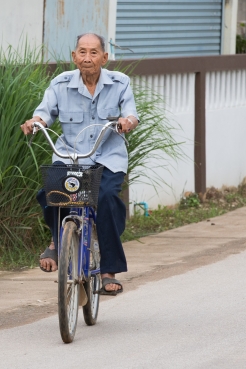This week the World Health Organization (WHO) published the long-awaited World Report on Ageing and Health. For HelpAge, this publication is hugely exciting and comes at a crucial time.
Population ageing is a major global trend of the 21st century, with the number of people aged 60 and over projected to increase from 901 million this year to 1.4 billion by 2030.
This demographic shift requires a commensurate shift in how services are delivered, particularly in health and care. They need to respond to the complexities of health in older age.

The Sustainable Development Goals (SDGs), adopted by member states last week, recognise that need.
Goal three commits to ‘ensure healthy lives and promote well-being for all at all ages’. The WHO report and the accompanying draft Global Strategy and Action Plan provide a framework to drive forward efforts towards healthy ageing and support the achievement of this goal.
How does the report see health and ageing?
For me, the most important and exciting thing about the WHO report is how it presents and conceptualises healthy ageing.
The report takes us away from thinking about health in older age solely as the presence or absence of disease and instead takes a broader approach, looking at an older person’s wellbeing and ability to function.
This recognition of the importance of supporting older women and men to be able to do the things that are important to them, in the places they want to be, is refreshing.
Another key step forward is the call the report makes for health and care services to be more person centred and delivered in a more integrated way, while the emphasis placed on the need to develop systems of long-term care is also particularly welcome.
Framing the purpose of this long-term care on the right to realise our continuing aspirations to wellbeing, meaning and respect would have a significant impact on our autonomy and dignity in our older age.
In the majority of countries HelpAge works in, systems of care do not exist. Care is typically provided by family, friends and other informal caregivers who are often not adequately trained, supported or compensated for the work they do.
The report recognises that a reliance on this informal care alone is no longer sustainable. The responsibility for caring for people in older age needs to be shared more equally between governments, service providers, communities and families.
Where does the report fit in with HelpAge’s work?
These messages are very much in line with what we hear from the older women and men we work with around the world, and the health and care work undertaken by the HelpAge global network will contribute to the achievement of healthy ageing.
Over the coming years, as the messages from the report are taken forward, HelpAge will continue to:
- strengthen health systems by training health workers to be able to better address health concerns in later life, and supporting the development of curricula and guidelines on healthy ageing
- work to increase older women and men’s health literacy through health promotion activities
- improve access to screening and health information through efforts to make services more available at the community level
- promote self-care among people in older age
- train and support community and home-based caregivers
- work with governments and other stakeholders to support the development of foundations for systems of person-centred long-term care.
Where to go from here?
With the report now launched, the real job of taking forward its important messages begins. For HelpAge, the narrative is in place and we now turn our attention to the development of the Global Strategy and Action Plan and how this can be utilised by governments and other stakeholders at the national and local levels.
A plan is needed that ensures services are designed and delivered that meet the specific health and care needs of older women and men and respect their autonomy and rights.
It will be key that efforts across the health, development and ageing sectors are aligned. Healthy ageing must be seen as an integral ambition within the SDG agenda, with efforts to address non-communicable diseases and achieve universal health coverage.
This is a big task but the report focuses our attention. We will keep up the momentum to ensure we achieve a world in which everyone experiences healthy ageing!
Download the WHO report.
